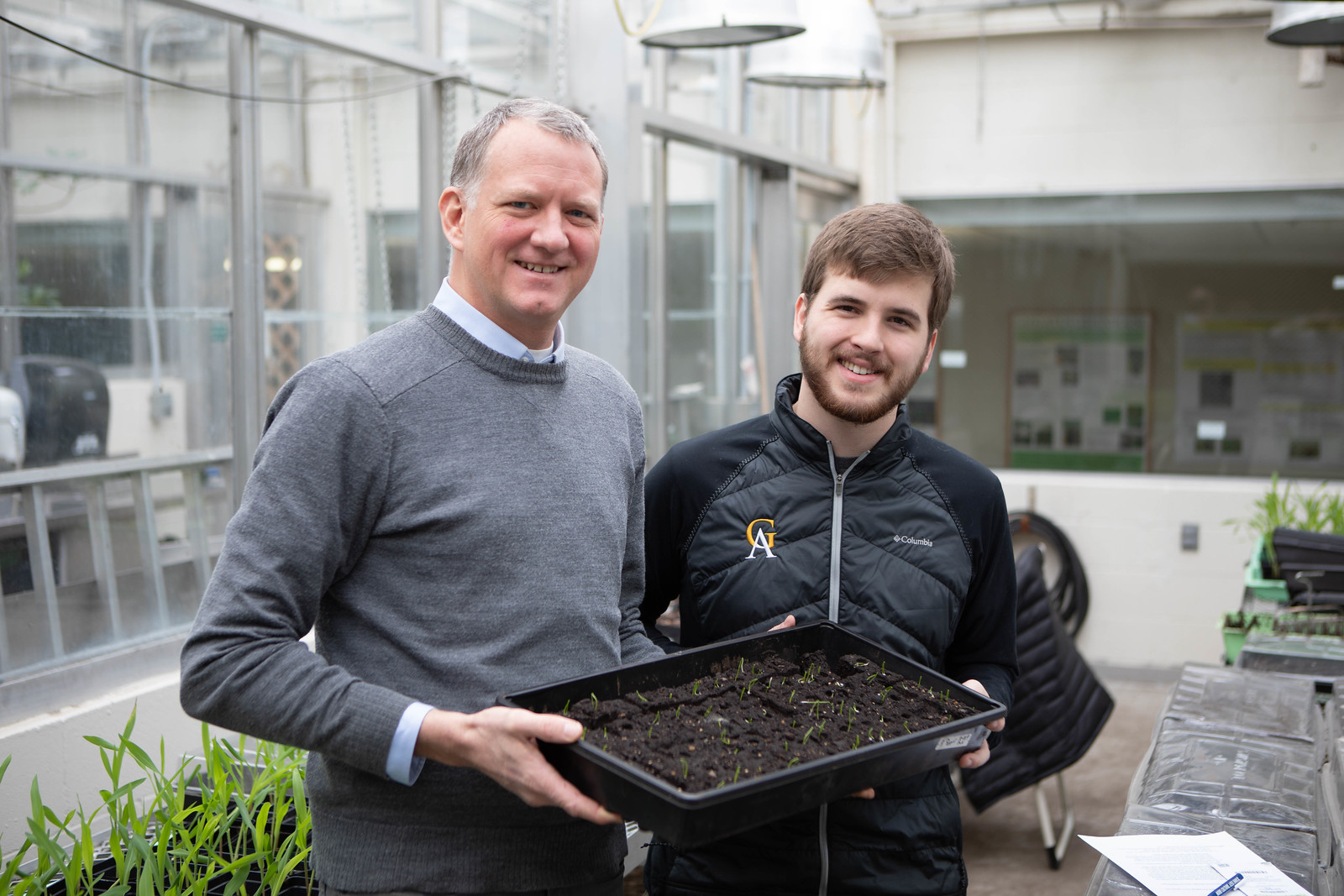Gustavus Adolphus College senior Andy DeLuca is a music education major. He spends most of his time in the fine arts building and Christ Chapel, playing music or helping with Daily Sabbath services through his student employment in the Office of the Chaplains. But when DeLuca looked at the January Interim Experience course listings this fall, a class called Culture, the Self, and Agriculture caught his eye.
“I grew up on a farm and have food allergies,” the Maple Plain, Minn. native explained. “I’ve always been interested in sustainable food and wanted to learn more.”

Throughout the month, DeLuca and his classmates have explored their own relationship with agriculture and the complexity of the agricultural industry, the policies and systems that impact and influence food production and delivery, and how climate change and agriculture intersect. Ben Penner, a local organic wheat farmer who uses sustainable practices, teaches the course.
“Agriculture touches on nearly every aspect of our life together; science and culture, spirituality and religion, ecology and institutions, global trade and economy,” Penner said. “Our goal in the course is to learn about the culture, systems and policies of agriculture, develop an agricultural imagination, and then respond to climate change through agriculture in any career path.”
“Ben brings a real-world perspective to the class,” DeLuca added. “He shares his knowledge of supply chains and how food gets from the field to your plate. Most people don’t realize how many steps there are in the process.”
Readings for the course include The Good Food Revolution by Will Allen, and The Great Derangement: Climate Change and the Unthinkable by Amitav Ghosh, who will visit Gustavus to speak at the Nobel Conference 55 on climate change this September.

Outside the classroom, the class visited a farm, prepared seedlings in the Nobel Hall of Science greenhouse using sustainable planting methods, and attended a Minnesota House of Representatives Agriculture and Food Finance Policy Division committee meeting. During the public comment period, Penner introduced the students and told representatives about the students’ research and projects on how climate change can be addressed through practices such as no-till agriculture. At the committee meetings, students also heard from many agricultural organizations that illustrated the diversity of the industry, including the Minnesota Corn Growers Association, the Minnesota Pork Producers Association, and the Minnesota Farmers Union, among others.
During their time at the Capitol, students caught up with Representative Samantha Vang ’16 and met with Saint Peter area Representative Jeff Brand to discuss issues of agriculture and sustainability.
“Meeting our local elected representative and attending the Minnesota House Agriculture and Finance Committee with a recent Gustavus graduate serving on the committee helped students connect and integrate their knowledge from the course with how agricultural policy is debated and created,” Penner said. “I think the students began to see how they could be involved in the process.”
As the January class wraps up, students are hard at work on their final project, which consists of developing a product, service, business, plan, or campaign that addresses climate change through agriculture.
“Learning the importance of agriculture and its role in climate change has let us see our own roles in fostering a sustainable world,” DeLuca said.

Leave a Reply
You must be logged in to post a comment.